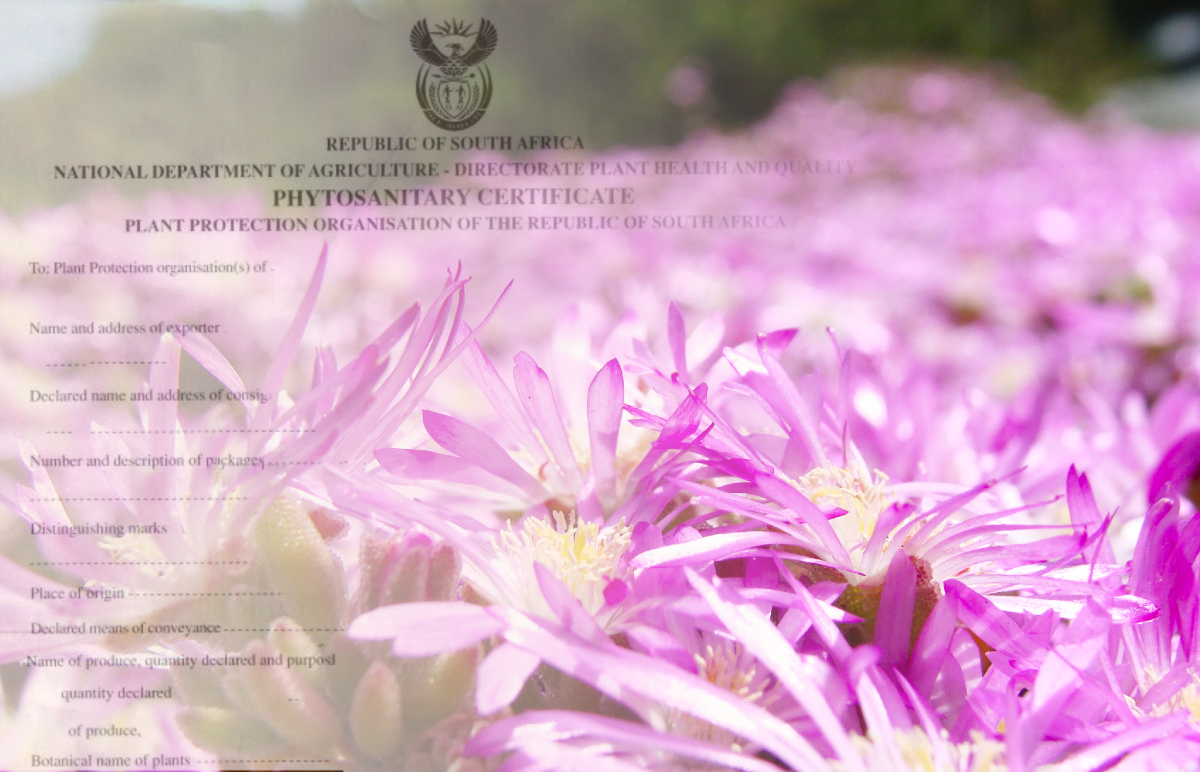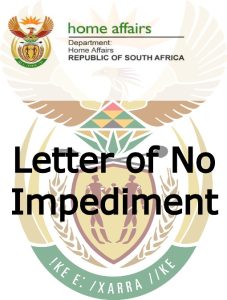Importing plants and plant products into South Africa requires you to have a South African phytosanitary certificate and plant passport. This certification proves that the plants and plant products being exported have been declared compliant according to the phytosanitary regulations. Meaning they are not carrying any pests, which can bring harmful diseases into the country they are being exported to. Every country has a set of guidelines and regulations which they follow for plant importation. In South Africa, you must meet the requirements set by the National Plant Protection Organisation of South Africa (NPPOZA) or meet the phytosanitary import conditions set by the Agricultural Pests Act, 1983 (Act 36 of 1983). The following article will explain further about the South African phytosanitary certificate and plant passport and how to apply for one in order to import plants into South Africa.
How to apply for the South African Phytosanitary certificate and plant passport?
 The National Plant Protection Organisation of South Africa (NPPOZA) is the department that issues plant import permits (also known as plant passports) in South Africa. Meaning in order to import plants to South Africa you must apply for an import plant permit with the department. For the permit to be approved and for you to import the plants to South Africa you must meet the NPPOZA phytosanitary import conditions.
The National Plant Protection Organisation of South Africa (NPPOZA) is the department that issues plant import permits (also known as plant passports) in South Africa. Meaning in order to import plants to South Africa you must apply for an import plant permit with the department. For the permit to be approved and for you to import the plants to South Africa you must meet the NPPOZA phytosanitary import conditions.
You must make sure that your plant products meet the phytosanitary measures, in order to be issued with a plant import permit. Once you are issued with the permit, you should send a copy of it to the supplier/exporter. The exporting country’s National Plant Protection Organisation (NPPO) will then check whether the plant product meets South Africa’s import requirements or not. A phytosanitary certificate will be issued by the exporting country if the requirements are met. The exporter/supplier must then send the original copy of the phytosanitary certificate together with the plant products to South Africa.
Steps to take:
1. A permit for the importation of controlled goods form must be completely filled and emailed to PlantHealthPermits@daff.gov.za or hand delivered to office 542 or 543 Harvest House, 30 Hamilton Street, Arcadia, Pretoria.
PlantHealthPermits@daff.gov.za or hand delivered to office 542 or 543 Harvest House, 30 Hamilton Street, Arcadia, Pretoria.
2. You then need to pay the prescribed fee either at the department or electronically. The following are the banking details:
Bank name: Standard Bank
Account name: Department of Agriculture, Forestry and Fisheries: Import of controlled goods
Account number: 011251735
Branch name: Arcadia
Branch code: 01-08-45
3. You should then send a copy of the import permit to the exporter/supplier.
4. At the South African port of entry:
- The plant products and the phytosanitary certificate will be inspected by the NPPOZA inspectors.
- The plant products will then be released if they meet the import requirements.
5. For the final release of the plant products, you must submit the import documents to the South African Revenue Service.
It takes about 30 days for the application to be processed.
Global Apostille Legalisation
Global Apostille is a Pretoria-based legalisation agency that assists corporations and individuals in getting apostilles and embassy legalization services in South Africa for documents to be used abroad. We make the legalization and apostille of South African documents simple for our clients.
Understanding that document authentication can be challenging and time-consuming, our main aim is to ensure our clients feel at ease. Our goal is to lessen this load by offering top-notch apostilling services at reasonable rates, without any hidden charges.
Global Apostille can handle various types of documents on your behalf from Birth Certificate to Power of Attorney. Our service offers a comprehensive solution, ensuring both official translation and legalization processes are straightforward. If you want to know more about our services, feel free to get in touch with us.
Tel: 012 348 3134 | 081 347 6060
Email: info@apostillelegalisation.co.za
.










1 thought on “South African phytosanitary certificate and plant passport”
I am wanting to import seed from Uganda, there seems to be so much mumbo jumbo involved. At the end if the day I just want to know what the total costs will be to import.